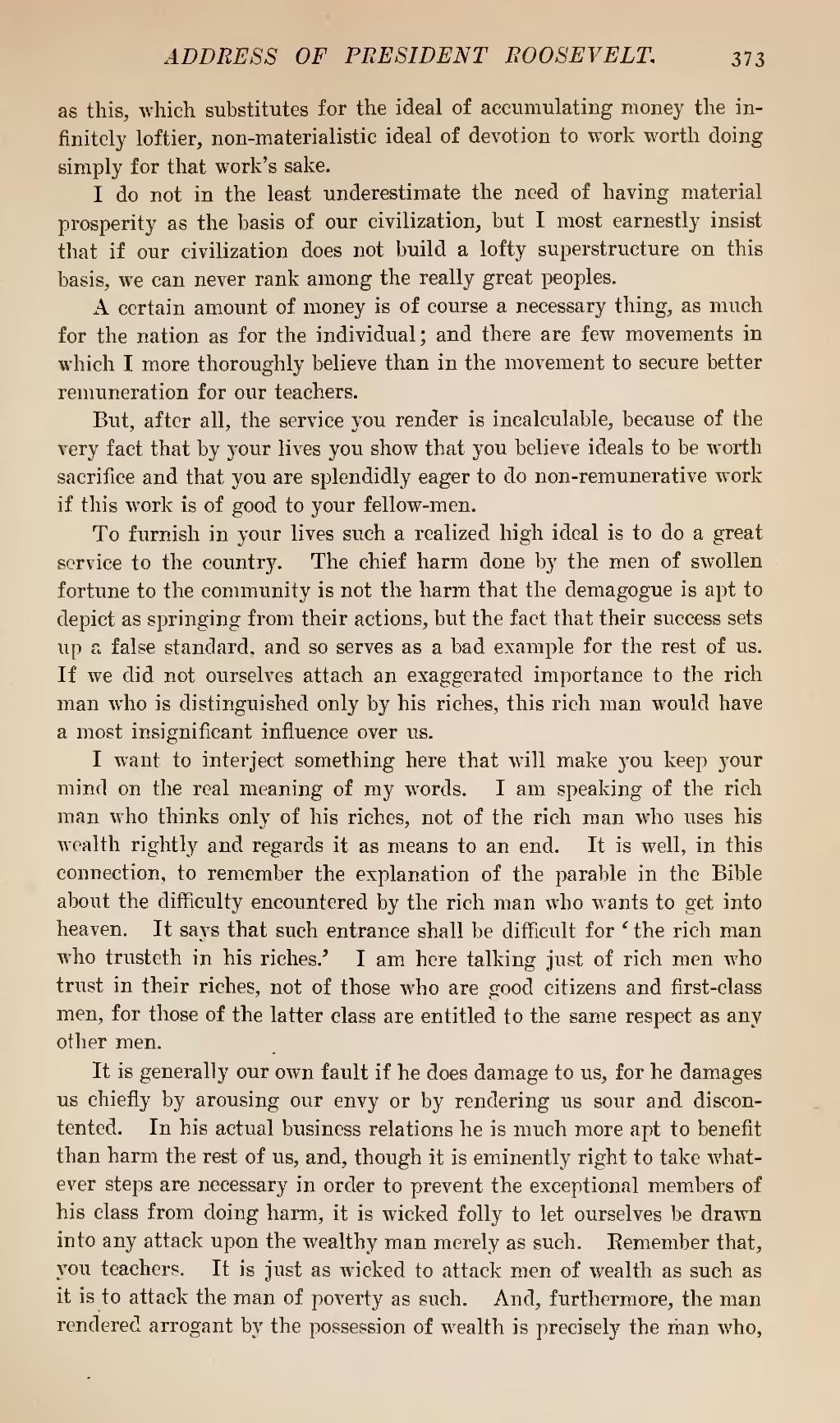as this, which substitutes for the ideal of accumulating money the infinitely loftier, non-materialistic ideal of devotion to work worth doing simply for that work's sake.
I do not in the least underestimate the need of having material prosperity as the basis of our civilization, but I most earnestly insist that if our civilization does not build a lofty superstructure on this basis, we can never rank among the really great peoples.
A certain amount of money is of course a necessary thing, as much for the nation as for the individual; and there are few movements in which I more thoroughly believe than in the movement to secure better remuneration for our teachers.
But, after all, the service you render is incalculable, because of the very fact that by your lives you show that you believe ideals to be worth sacrifice and that you are splendidly eager to do non-remunerative work if this work is of good to your fellow-men.
To furnish in your lives such a realized high ideal is to do a great service to the country. The chief harm done by the men of swollen fortune to the community is not the harm that the demagogue is apt to depict as springing from their actions, but the fact that their success sets up a false standard, and so serves as a bad example for the rest of us. If we did not ourselves attach an exaggerated importance to the rich man who is distinguished only by his riches, this rich man would have a most insignificant influence over us.
I want to interject something here that will make you keep your mind on the real meaning of my words. I am speaking of the rich man who thinks only of his riches, not of the rich man who uses his wealth rightly and regards it as means to an end. It is well, in this connection, to remember the explanation of the parable in the Bible about the difficulty encountered by the rich man who wants to get into heaven. It says that such entrance shall be difficult for 'the rich man who trusteth in his riches.' I am here talking just of rich men who trust in their riches, not of those who are good citizens and first-class men, for those of the latter class are entitled to the same respect as any other men.
It is generally our own fault if he does damage to us, for he damages us chiefly by arousing our envy or by rendering us sour and discontented. In his actual business relations he is much more apt to benefit than harm the rest of us, and, though it is eminently right to take whatever steps are necessary in order to prevent the exceptional members of his class from doing harm, it is wicked folly to let ourselves be drawn into any attack upon the wealthy man merely as such. Remember that, you teachers. It is just as wicked to attack men of wealth as such as it is to attack the man of poverty as such. And, furthermore, the man rendered arrogant by the possession of wealth is precisely the man who,
